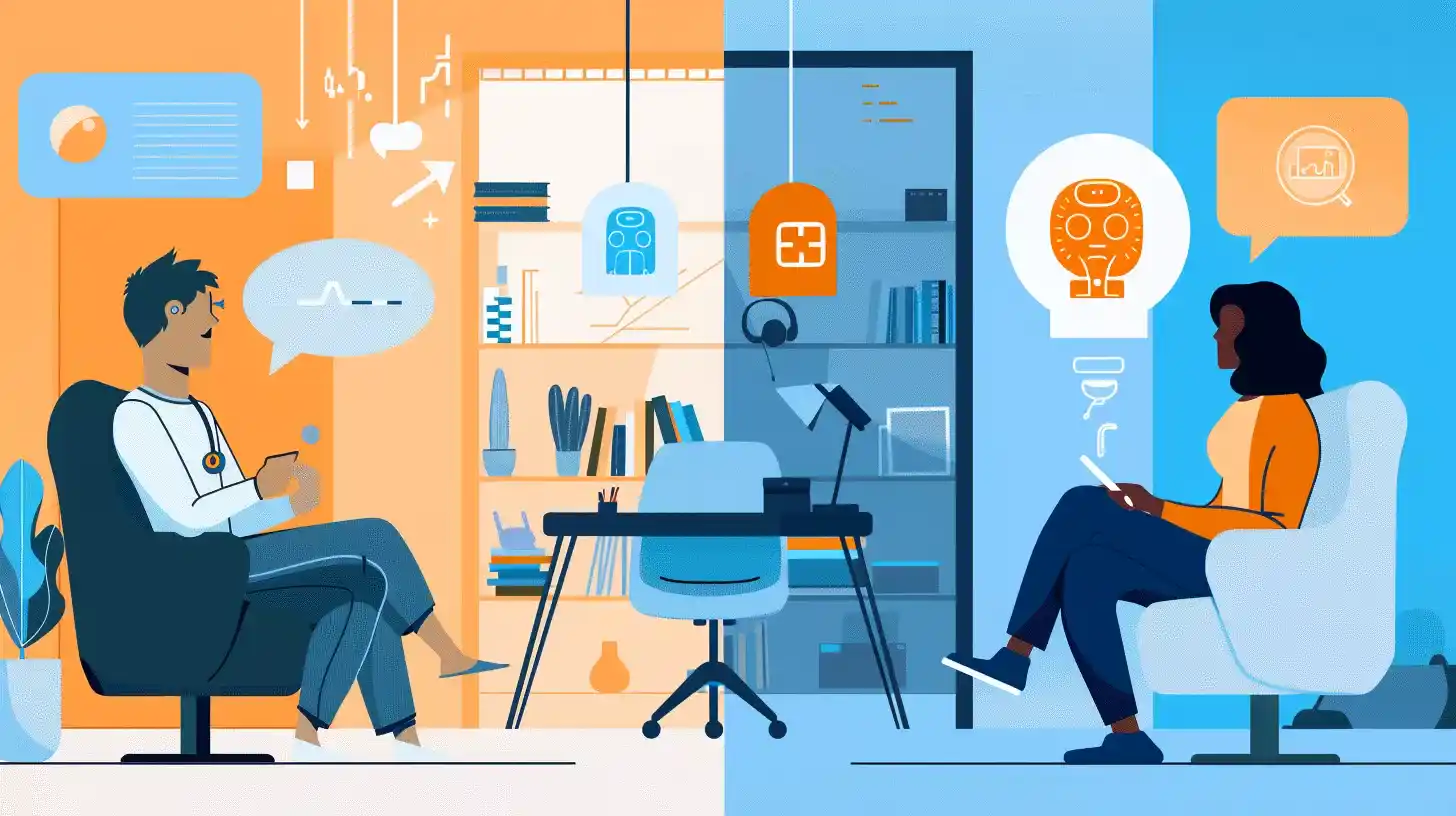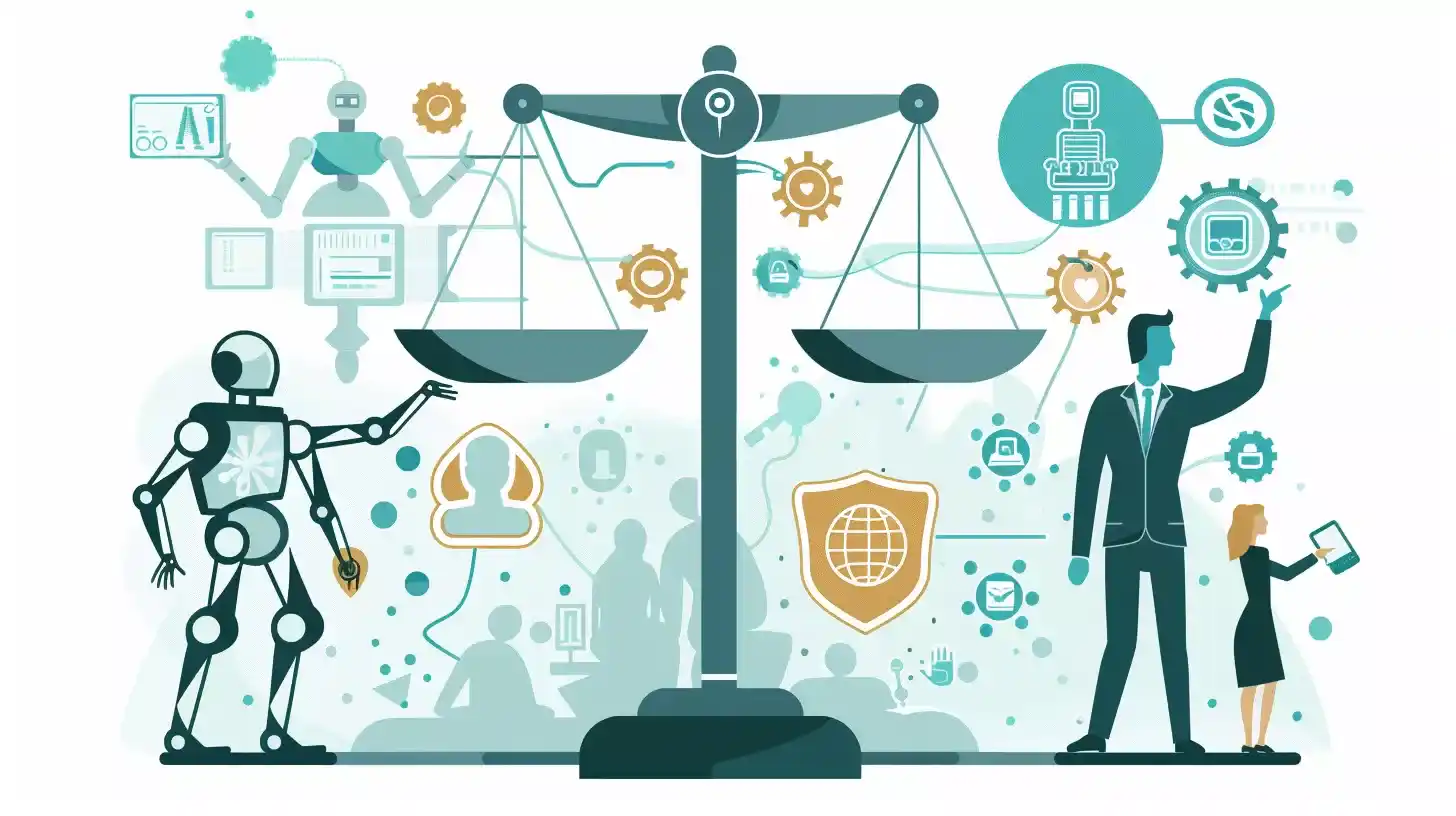Table of Contents
AI Chatbots Mental Health: Artificial intelligence is permeating various facets of our lives, from weather forecasting to medical diagnosis, and now, it’s delving into the realm of mental health support. Amidst a shortage of human therapists and a rising demand for mental health services, AI-driven chatbots emerge as a promising solution. One notable pioneer in this field is Alison Darcy, a research psychologist and entrepreneur who advocates for leveraging technology to provide accessible mental health care.
Bridging the AI Chatbots Mental Health Gap
Alison Darcy recognized the pressing need for innovative approaches to mental health care. With a background in coding and therapy, she conceptualized Woebot, AI Chatbots Mental Health accessible via smartphone applications. Woebot employs text-based interactions to assist individuals in managing various mental health challenges such as depression, anxiety, addiction, and loneliness, offering support on the go.

Rethinking Psychotherapy for the Digital Age
Traditional psychotherapy methods have remained relatively unchanged since their inception, failing to adapt to the modern lifestyle. Woebot integrates principles of cognitive behavioral therapy (CBT), a widely recognized therapeutic approach, into its algorithms. By analyzing language patterns, including words, phrases, and emojis associated with negative thoughts, Woebot guides users through cognitive restructuring exercises akin to in-person CBT sessions.
Overcoming Barriers to Care
Accessing traditional therapy often poses numerous barriers, including stigma, cost, and lengthy waitlists, exacerbating the mental health crisis, particularly during the pandemic. Woebot’s digital platform aims to circumvent these obstacles, offering users convenient and stigma-free access to mental health support. Despite the platform’s effectiveness in reaching millions of users, challenges persist in accurately assessing and responding to users’ needs, especially in crises.
The Pitfalls of AI Chatbots’ Mental Health Support
While AI-powered chatbots hold promise in expanding mental health services, they are not without risks. Instances like Tessa, a chatbot designed to aid in eating disorder prevention, underscore the importance of stringent oversight and ethical guidelines. Tessa’s unintended dissemination of harmful advice highlights the potential dangers of relying solely on AI algorithms without human intervention.
Balancing Innovation with Safety
Ensuring the responsible development and deployment of AI Chatbots Mental Health solutions is paramount. While closed-system chatbots like Woebot offer predictability and reliability, there is a risk of user disengagement due to repetitive interactions. Conversely, open-ended generative AI models, while more conversational, pose challenges in maintaining accuracy and safety.
Towards Ethical AI Chatbots Mental Health Care
The evolving landscape of AI chatbot mental Health care necessitates a careful balance between innovation and safety. Companies like Woebot Health advocate for thoughtful and deliberate development processes to instill public confidence in AI technologies. However, the journey towards ethical AI implementation requires collaborative efforts from researchers, practitioners, and regulatory bodies to safeguard users’ well-being.
Nurturing Human Connection in the Digital Era
Despite the advancements in AI technology, it’s essential not to overlook the irreplaceable aspect of human connection in mental health care. While chatbots like Woebot provide valuable support, they cannot fully replicate the empathetic understanding and connection cultivated through face-to-face interactions with a therapist. Moments of genuine empathy and understanding, crucial for healing, may be challenging to replicate in digital interactions.
Addressing Regulatory Gaps and Ethical Concerns
As the utilization of AI in mental health care expands, addressing regulatory gaps and ethical concerns becomes imperative. Stricter guidelines and oversight mechanisms are necessary to ensure that AI-driven interventions adhere to ethical principles, safeguarding users from potential harm. Collaborative efforts between tech developers, mental health professionals, and regulatory agencies are essential to establish robust frameworks for AI implementation in mental health care.

Empowering Users through Informed Choices
Empowering users to make informed decisions about their mental health care journey is essential. Providing transparent information about the capabilities and limitations of AI-driven interventions enables users to navigate these tools effectively. Additionally, offering alternatives, such as blended approaches combining digital interventions with human therapy, ensures comprehensive and personalized care tailored to individual needs.
Embracing a Multifaceted Approach to Mental Health Support
While AI-driven chatbots contribute to expanding access to mental health support, they should complement rather than replace traditional therapeutic modalities. Embracing a multifaceted approach that integrates digital interventions, such as healthcare chatbots, with in-person therapy fosters holistic and sustainable mental health care solutions. By leveraging the strengths of both technology and human expertise, we can address the diverse needs of individuals seeking mental health support.
Looking Ahead: Striking a Balance
As we navigate the evolving landscape of AI-driven mental health care, striking a balance between innovation and human-centered care is paramount. Embracing technological advancements while upholding ethical standards and prioritizing human connection ensures the delivery of safe, effective, and inclusive mental health services. By harnessing the transformative potential of AI in conjunction with human compassion, we can pave the way for a brighter future in mental health care.
In conclusion, AI-driven chatbots represent a groundbreaking frontier in mental health support, offering accessible and personalized interventions. However, ensuring their efficacy and safety requires ongoing scrutiny, adherence to ethical standards, and a commitment to prioritizing users’ welfare above all else. As we navigate this intersection of technology and mental health, it’s imperative to tread cautiously while embracing the potential for transformative change.